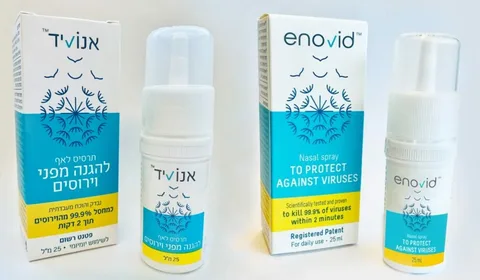Nasal spray is a common over-the-counter medication, is a liquid medication delivered through a fine mist sprayed into the nostrils. It’s primarily used to alleviate nasal congestion, sinus symptoms, and allergy-related issues. Nasal sprays come in various formulations, each designed to address specific nasal conditions and symptoms.
What Are The Types of Nasal Sprays?
Decongestant Nasal Sprays:
These sprays contain medications such as oxymetazoline or phenylephrine, which constrict blood vessels in the nasal passages, reducing swelling and congestion. They provide quick relief from nasal congestion but should be used for short durations to avoid rebound congestion.
Steroid Nasal Sprays:
Steroid nasal spray contain corticosteroids, such as fluticasone or triamcinolone, which reduce inflammation in the nasal passages. They are commonly used to treat allergic rhinitis, sinusitis, and nasal polyps. These sprays provide long-term relief from nasal congestion and other allergy symptoms.
Saline Nasal Sprays:
Saline nasal sprays contain a solution of salt in water and are used to moisturize and cleanse the nasal passages. They are often used to relieve dryness, irritation, and congestion caused by dry indoor air, allergies, or colds. Saline sprays are safe for frequent use and can be used in conjunction with other nasal medications.
Antihistamine Nasal Sprays:
These sprays contain antihistamines, such as azelastine or olopatadine, which block the action of histamine, a chemical released during allergic reactions. They are effective in relieving symptoms of allergic rhinitis, including sneezing, itching, and congestion.
How to Use Nasal Sprays?
- Shake the bottle gently before use.
- Blow your nose to clear any mucus.
- Hold the bottle upright and insert the nozzle into one nostril.
- Tilt your head slightly forward and breathe in gently through your nose while spraying.
- Repeat the process for the other nostril.
- Avoid blowing your nose immediately after using the spray to allow the medication to work effectively.
Precautions and Side Effects
- Follow the instructions provided with the nasal spray and do not exceed the recommended dosage.
- Avoid using decongestant nasal sprays for more than three consecutive days to prevent rebound congestion.
- Steroid nasal sprays may cause mild side effects such as nasal irritation, dryness, or nosebleeds. These side effects are usually temporary and can be minimized by using the spray correctly.
- If you experience persistent or severe side effects, consult a healthcare professional.
Managing Side Effects: What to Expect
When using any medication, it’s essential to be aware of potential side effects. Nasal sprays, commonly used for conditions like allergies or sinus congestion, may cause temporary side effects such as irritation, dryness, or nosebleeds. These effects typically subside as your body adjusts to the medication. However, if you experience severe or persistent side effects, it’s crucial to consult your healthcare provider.
When to Consult a Healthcare Professional?
While nasal sprays are generally safe when used as directed, there are instances where you should seek guidance from a healthcare professional. If you experience severe or persistent side effects, such as severe nasal irritation, bleeding, or changes in vision, it’s important to consult your doctor. Additionally, if your symptoms worsen or do not improve after using the nasal spray as directed, your healthcare provider can offer further guidance and may recommend alternative treatments.
However, it’s important to use over-the-counter nasal sprays as directed and to consult with a healthcare professional if you have any questions or concerns. Overall, nasal sprays can be a highly effective and convenient option for managing nasal symptoms, offering relief from congestion, allergies, and sinusitis while minimizing the risk of systemic side effects.
The Efficacy of Nasal Sprays
Nasal sprays can be highly effective in relieving symptoms of nasal congestion, allergies, and sinusitis. They work by delivering medication directly to the nasal passages, providing fast relief. However, it’s essential to use them correctly and follow the instructions provided by your healthcare provider or pharmacist. While nasal sprays can be an effective treatment option, they may not be suitable for everyone. Consulting with a healthcare professional can help determine the best course of treatment for your specific needs.
In addition to their efficacy in treating nasal symptoms, nasal sprays offer several advantages. They are convenient to use and portable, making them suitable for use at home, work, or while traveling. Nasal sprays also provide targeted relief, delivering medication directly to the site of congestion or inflammation in the nasal passages. This targeted delivery reduces the risk of systemic side effects often associated with oral medications.
Furthermore, nasal sprays come in various formulations, including saline solutions, corticosteroids, and decongestants, providing options for different needs and preferences. Some nasal sprays are also available over-the-counter, allowing for easy access without a prescription.
Conclusion
Nasal sprays are effective in providing relief from nasal congestion, sinus symptoms, and allergies. With various types available, individuals can choose the most suitable nasal spray based on their specific symptoms and needs. When used correctly and according to instructions, nasal sprays can provide effective relief and improve nasal health.
FAQs
Can I use nasal sprays for a prolonged period?
It’s essential to follow the instructions provided with the nasal spray and avoid using decongestant sprays for more than three consecutive days to prevent rebound congestion. Steroid nasal sprays can be used for longer durations under the guidance of a healthcare professional.
Can nasal sprays cause side effects?
Nasal sprays may cause mild side effects such as nasal irritation, dryness, or nosebleeds, particularly with steroid sprays. These side effects are usually temporary and can be minimized by using the spray correctly.
Are nasal sprays safe to use during pregnancy?
It’s advisable to consult a healthcare professional before using nasal sprays during pregnancy, especially decongestant sprays, as some medications may have potential risks.
Can children use nasal sprays?
Nasal sprays formulated for children are available and are safe for use when used according to instructions. However, it’s essential to consult a pediatrician before using nasal sprays in children, especially for prolonged periods.
Can I use saline nasal sprays frequently?
Saline nasal sprays are safe for frequent use and can be used multiple times a day to moisturize and cleanse the nasal passages. They are also suitable for long-term use as part of daily nasal hygiene.




